I'm blogging notes and thoughts as I watch the Discovery Channel documentary by actor Dennis Quaid and others — “Chasing Zero: Winning the War on Healthcare Harm” that first aired April 24 at 8 am EDT. With laptop and Tivo remote in hand… away we go.
Link to the show info at discovery.com is here. I hope you'll watch too and share your comments here on the blog. It also airs again next Saturday, May 1 or you can watch it online in multiple parts. I'll update this post as I watch…
UPDATE: You can watch the documentary on YouTube.
Starting the show (Tivo noise, boo-boop)… quotes from the show and some of my thoughts:
- Quaid: even the best hospitals can be dangerous places that cause catastrophic harm
- In hospitals: “The invisible enemy — failing support systems that can't keep up.”
- 100,000 Americans die each year because of healthcare harm, we've known this since 1999
- “more shocking than the # of deaths is that it's possible to bring this number almost to zero.”
- Quaids twins were overdosed TWICE during the stay, sounds like systemic error to me
- “Fear is a major barrier to action” says Quaid – sounds like Dr. Deming (fear of shame, fear of malpractice)
- Director for Quality at Mayo Clinic says his reaction to the Quaid twins overdose was “could this happen at Mayo Clinic?” Good example of looking learn from mistakes of others. What if Cedar Sinai had asked that question when the babies were killed in Indianapolis? He said “the answer was yes” (it could happen).
This picture shows the old design (easy to mistake for one another) versus the new design, where the doses have VERY different packaging and a different tactile feel (different motion to open). Better mistake proofing.
- “The empowering culture at Mayo allows nurses to redesign their workflow” (sounds like lean!) “They even allow their cleaning staff to get involved” (of course, everyone can do kaizen). They developed checklists to help guide proper cleaning.
- Mayo: better systems “… protect patients from the frailties of competent human beings.”
- For the hospitals performing below average (‘those with TERRIBLE quality”) — “not a single board chair thought they were below average.”
- “There's a level of denial and lack of knowledge about their own [hospital quality] performance that is shocking.”
- “The weapons against harm are leadership, safe practices, and technology” (Mark's comment — not just technology alone!)
- Here's Dr. Don Berwick and IHI featured in the show, talking about their 100,000 lives campaign. “We know what to implement, but we're approaching it as volunteerism… ultimately, we're going to have to mature to the point where a safe practice is no longer an optional matter. You have to be safe, you know how to do it, we owe it to our patients.”
- Quaid mentioned how we need patient involvement in safety improvements… patients are an underutilized resource, he says
- There's another story about a man who was told his brain tumor was benign… but the pathology report said he had cancer. The report had been misplaced, so he was never told he had cancer. Six months later, he had a new growth discovered the size of the surgeon's fist — he died 18 months later. Systems and communication error, NOT truly a diagnosis error. It got filed in his chart without anyone other than the pathologist seeing the cancer result. The same family, father and son were both harmed by different medical errors.
- Dr. Carolyn Clancy emphasizes that fear is a barrier – people often get punished for reporting errors and they learn to keep quiet.
- Quaid says “medical error should not be criminalized. All it's going to do is alienate the very people we're trying to bring in to help.” I AGREE!
- One of those criminalized nurses (Julie Thao, who I blogged about here) tells her story: she had been working a double shift, it was almost 1 am. She had to be back later that day for ANOTHER shift, so she laid down to take a rest. At 9 AM, she met a new patient, a 16-year old girl. Thao followed nursing unit guidelines for getting the patient ready for an epidural. She adhered to the checklist and prepped the epidural at the same time she was prepping an antibiotic. “A number of system flaws led to the predictable human error.” She gave the epidural instead of the antibiotic, the patient soon went into cardiac arrest. The hospital fired Julie and, as a single mother of four, she had to plea guilty to a misdemeanor to avoid prison time. My comment – the system failed her.
Picture from the show of the two bags she mistook for one another. Before you pass judgment, remember the circumstances.
- Lucian Leape says “she was hung out to dry for making a mistake which was clearly caused by a whole host of very bad systems.” He adds -the nurse was a second victim in two ways – a victim of bad systems and she as devastated by her error, “she was presumed to be incompetent, but no evidence was ever produced that she was incompetent.” Leape says the lesson is that “hospitals need to be responsible for their systems.”
- They also feature the convicted pharmacist Eric Cropp, who I blogged about here. Cropp says tearfully, “I wish I was the one who was dead sometimes. I didn't have anybody there for me, either.” Leape again says “I think the criminalization is a terrible thing.”
- The Josie King Story is also featured in the show (their foundation is here). I also highly recommend Sorrel King's book Josie's Story: A Mother's Inspiring Crusade to Make Medical Care Safe
- Quaid: “You have to start with engaged leadership.” AMEN (see board comment above).
- “My biggest lesson has been to empower the staff” says Dr. William Rupp, CEO of the Mayo Clinic Florida Campus.
- They show how nurses at Mayo are doing report at the bedside, instead of the old way in the nurses station. “To know how your day is going to go, you have to visualize your patient.”
- Berwick talks about an IHI program for surgical residents called Check a Box, Save a Life. He says if a resident can get the surgical checklist used in each surgery they're involved in as a resident, they'll each save ONE LIFE, on average.
- They talk to Quaid in the cockpit of his plane, with his own checklist – “how much does this cost? asks Quaid. “It's the most important piece of equipment on the airplane.” Quaid illustrated how the checklist caught his own error where he thought the plane's beacon should be off (it really should be ON, the checklist said).
- The program also features Dr. Peter Pronovost, who talks about the “autonomous culture that is grossly understandardized.” – we need more checklists and better teamwork (as surgeons from the Cleveland Clinic talked about in the show.”
- They talk about opportunities for reducing surgical site infections… “where's the rationale for NOT doing this?”
- Talking about Computer Physician Order Entry, Quaid makes the correct point that this technology is sometimes not implemented correctly and might even cause unintended harm. Technology is never a silver bullet.
- The best hospitals are moving away from the mindset where errors and harm “were just a cost of doing business.” Now they are working towards ZERO errors.
- Dr. Berwick says patients need to speak up and ASK their hospital if they are following the best known standards of care.
Thanks to Dennis Quaid and the producers for putting together this excellent program. Thanks to Discovery Channel for airing it commercial free.
News stories about the show:
- WSJ: “Patient Safety: The Movie”
- CNN: Anderson Cooper interview with Dennis Quaid
- AP: Quaid: End medical errors that nearly killed twins
Please scroll down (or click) to post a comment. Connect with me on LinkedIn.
Let’s build a culture of continuous improvement and psychological safety—together. If you're a leader aiming for lasting change (not just more projects), I help organizations:
- Engage people at all levels in sustainable improvement
- Shift from fear of mistakes to learning from them
- Apply Lean thinking in practical, people-centered ways
Interested in coaching or a keynote talk? Let’s talk.
Join me for a Lean Healthcare Accelerator Trip to Japan! Learn More



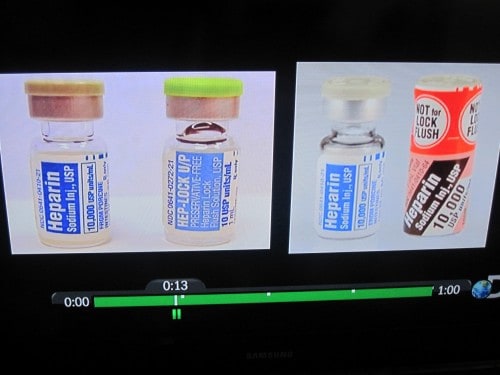
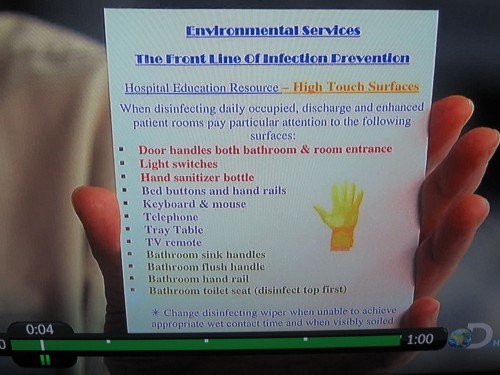
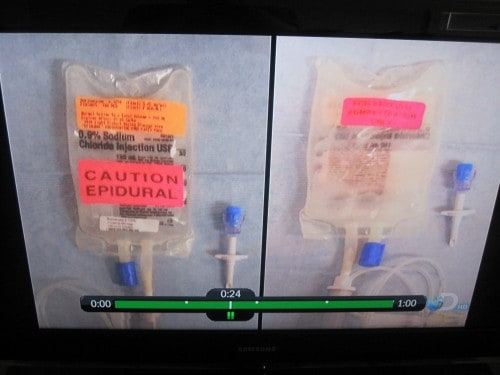
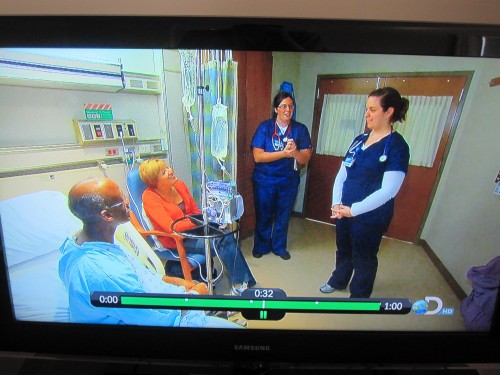
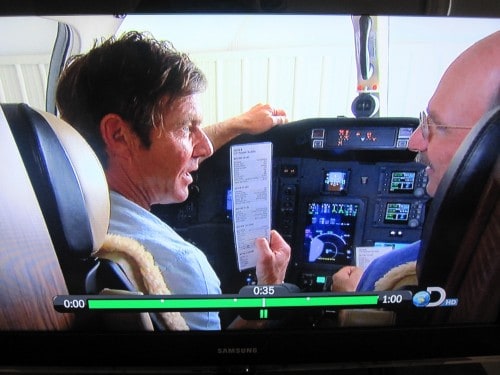







Mark – Thank you for letting your readers know that this program was going to be aired. I set the DVR to capture the Saturday morning program and watched it last night. It is a very powerful documentary and I highly recommend it for anyone remotely involved with the healthcare industry. Seeing the interview with the convicted pharmacist (Eric Cropp) in prison…how sad. Just WHAT is that going to accomplish by imprisoning someone like him??!! On the other hand, the documentary did a good job balancing the tragic stories with the stories of progress and improvements (e.g. checklists, the Mayo Clinic nurses going to the gemba TOGETHER at shift change). -m
Mary – I hope this documentary gets shown in every hospital. It does a good job of showing how this is a matter of “bad systems” not “bad people.” We need to help protect and provide support to healthcare employees and do this at the same time as protecting patients (good systems that ensure quality are good for ALL… and it reduces cost at the same time). The quality/cost point could have been covered better in the Quaid show maybe.
But very powerful. I agree about Cropp. The 2nd interview I’ve seen him cry in — this was the first:
https://www.leanblog.org/2010/03/pharmacist-jail-interview-what-good-does-blame-do/
Did he or Julie Thao want to kill somebody? Of course not.
[…] realize how much preventable harm and death occurs in healthcare each year. Efforts like the Dennis Quaid “Target Zero” TV program are trying to educate the public about how common medical harm is and, more importantly, how […]
Hi
I just saw the entire documentary and loved the entire thing. I worked in a highly rated hospital for over 30 years and I have not seen the moral so low because of all the pressures put on us these days. But this documentary was so inspirational and moving .I just would like to know if anyone out there has a full copy I could have to show some departments in our hospital. Thank you and hope to hear from anyone soon.
Gustavo – you can watch the whole show online anytime. I don’t know if it’s available on DVD.
Part 1:
http://dsc.discovery.com/videos/chasing-zero-part-1.html
Once you are there, you will see links for the next parts of the show.
I’m one of the editors on the Chasing Zero and I just found your blog while searching for images, we’re preparing a Hospital Leaders Toolbox as we speak with additional content for hospitals and their boards to use to Chase Zero. You can order from our site http://www.safetyleaders.org. The movie only version is available now, and we will hopefully finish up the Toolbox edition soon. Hope this helps!
Sadly, there are allegations being made about the producer of the video, Dr. Charles Denham:
[…] Dosage errors – highlighting the case of the Quaid twins (much discussed here on the blog, including the systemic errors that caused this preventable mistake). CNN says, according to the […]
Comments are closed.